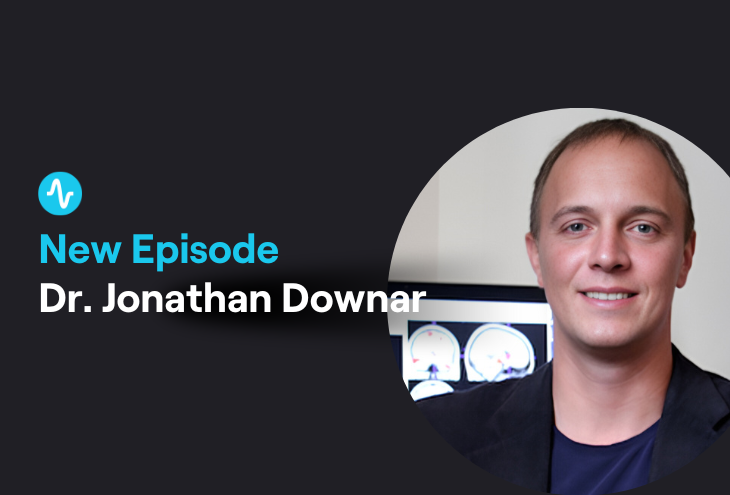Can TMS Therapy be Delivered in One Day? Dr. Jonathan Downar explains the evidence
May 6, 2025 - neurocare group

Transcranial Magnetic Stimulation (TMS) has become an effective treatment for depression, particularly for patients who do not respond to medication. Traditionally, TMS requires multiple weeks of daily sessions, limiting accessibility for many patients. However, recent research is beginning to develop accelerated protocols that significantly reduce treatment duration without compromising efficacy.
In a recent interview, neurocare’s Dr. Trevor Brown spoke with Dr. Jonathan Downar, Psychiatrist and Associate Professor at the University of Toronto, about the groundbreaking ONE-D Trial. This new TMS protocol, designed to optimize neuroplasticity, has demonstrated an impressive 90% response rate and 70% remission rate in preliminary studies.
The ONE-D Trial: TMS for depression, Optimized
TMS therapy has been proven to work for treatment-resistant depression for some time. However, a major disadvantage with classical protocols is that they require many sessions, taking place over weeks or months. While these protocols offer several benefits over other treatment-resistant depression therapies, there are logistical and cost-related drawbacks to these long protocols.
The ONE-D (Optimized, Neuroplastogen-enhanced depression) trial seeks to remove these drawbacks for patients by optimizing the protocol for maximum efficiency over the shortest time possible. This latest pilot study details a treatment schedule compressed into a single day, where patients receive 20 sessions of intermittent theta burst stimulation (iTBS) at 30-minute intervals. To enhance neuroplasticity, the protocol includes pre-treatment with the NMDA receptor modulator D-cycloserine, which has been shown to boost neuroplasticity, and lisdexamphetamine, which is often prescribed for ADHD. Interestingly, Dr Downar’s team found that the exceptionally high response rates were delayed over 6 weeks post-treatment.
Clinical Implications
Perhaps the most significant obstacles preventing patients from accessing TMS are logistical problems and cost of the extensive 30-40 sessions required. By removing these barriers, a single-day protocol would open TMS therapy to patients who are unable to attend regular sessions over extended periods of time and reduce the cost of therapy for those patients. This is very relevant for treatment resistant depression, but also improves accessibility for conditions which impact mobility, like Parkinson’s or Alzheimer’s disease.
Research: Next Steps
While the results from this pilot study are promising, replication studies and randomized controlled trials are needed to definitively establish efficacy and develop a protocol for clinical use. Followup studies are already underway, where Dr Downar’s team are working to optimise the protocol and reduce usage of psychostimulant medication alongside, which the team thinks might not be necessary.
The field of TMS is evolving rapidly, with innovations like the ONE-D and SAINT protocols making treatment more accessible and efficient. To learn more about this research, watch the full interview with Dr. Jonathan Downar on neurocare's YouTube channel.






